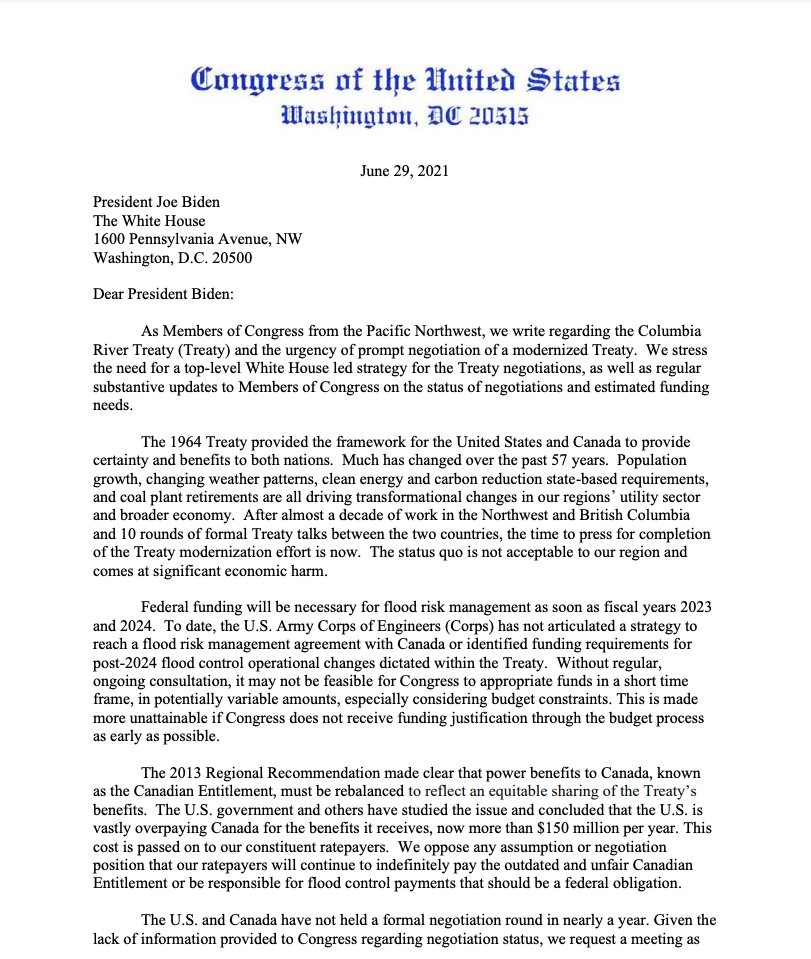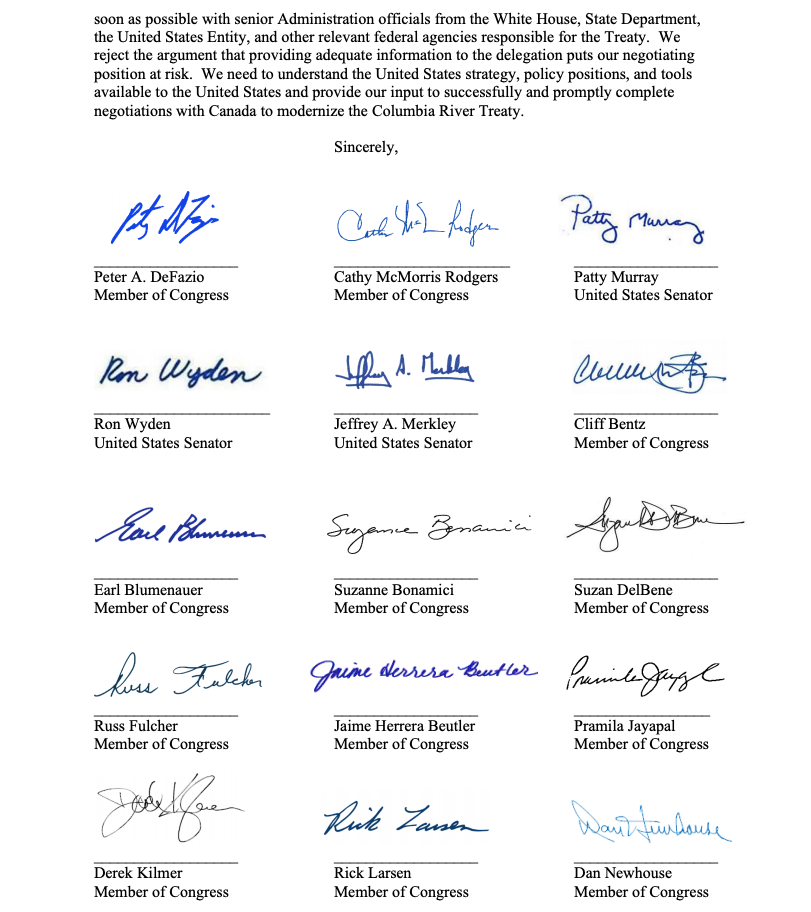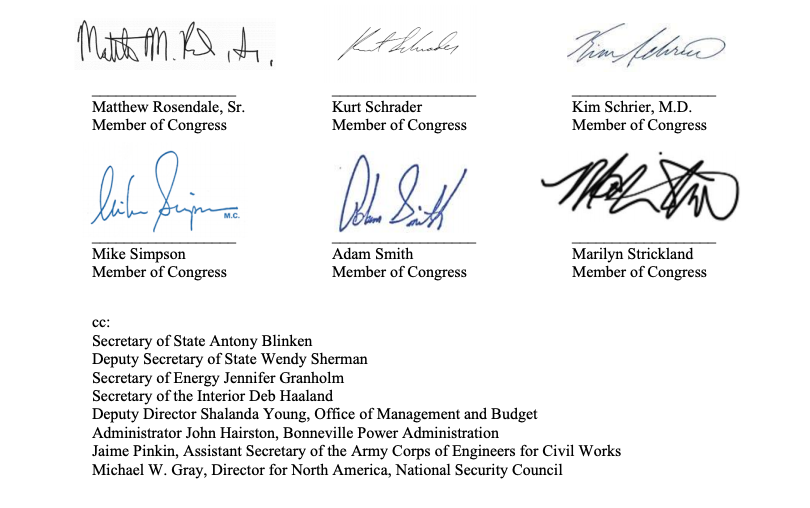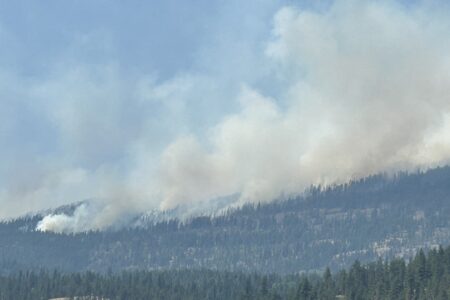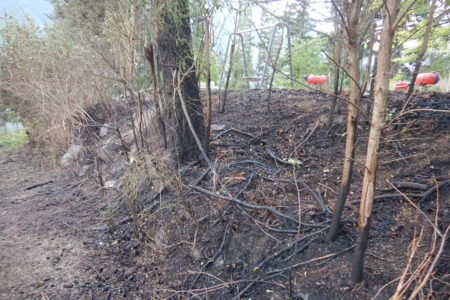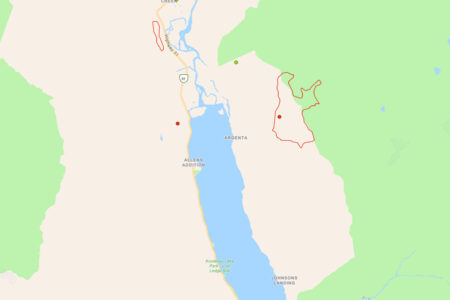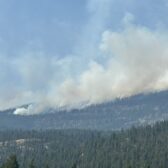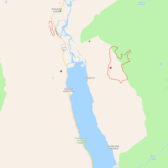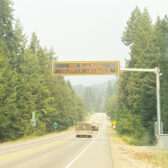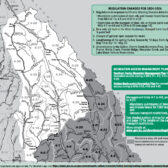River Talk — Canadian negotiators need to hold their ground
Eileen Delehanty Pearkes has been researching and writing about the history and politics of water in the upper Columbia Basin since 2005.
Her book on the Columbia River Treaty, A River Captured, was released in 2016.
Pearkes has agreed to help readers of The Nelson Daily understand the importance of the Columbia River Treaty to the region in her column River Talk.
Today, Pearkes writes about the push from 21 members of the United States Congress for President Joe Biden to get his administration involved in Treaty negotiations.

Productive Canadian ranchland that was flooded and destroyed by the Columbia River Treaty. — Photo courtesy Stan Triggs. Photos of the Kootenay River valley (1969-70) are stored at Touchstones Nelson Museum of Art and History.
President Joe Biden must get lots of letters, but one that arrived at the White House June 29, 2021, deserves some special attention, especially if you live in the upper Columbia River basin.
Signed by 21 members of the U.S. Congress, it asks the president to pay attention to Columbia River Treaty negotiations. Released to the media, it caused a flurry of press in Pacific Northwest newspapers, but only on the American side.
Just under a year ago, Canada’s negotiating team responded formally to a U.S. proposal. Since then, the U.S. has not responded to that response. A month or so ago, the U.S. negotiating team indicated an interest in getting back to the treaty table. No meeting has yet taken place, nor has Canada received a response to their year-old response.
The Columbia River Treaty was signed in 1961, and after much controversy in Canada, finally ratified in 1964. The agreement resulted in four storage reservoirs – one straddling the boundary and three in Canada – all of which hold snowmelt water in Canada for American use. Yes, it’s true that this treaty water is used by Canada, but the impact of that water storage is almost exclusively felt by Canada and the way the water is used is largely controlled by the U.S.
The treaty is ‘evergreen,’ meaning that it does not expire but can be changed by mutual agreement. Either country could also issue a 10-year notice of termination. Neither country has done that, yet. Only one part of the treaty changes in 2024, flood control.
Just a few years from now, the U.S. will have to draw on its own reservoirs to store spring flooding, before requesting additional help from Canada. This change in the U.S. system will have ecological and economic consequences for a country that has enjoyed status quo for 60 years.
Early on, the letter asks for “certainty and benefits to both nations” without getting into details. There is no question, however, that the U.S. will lose certainty around flood control. Business interests in the region know that change is coming. It’s making them uncomfortable.
“The status quo is not acceptable to our region and comes at significant economic harm.” It’s true. The U.S. has built an entire economy, including giant agri-business, an international airport and global shipping terminals – all around Canada’s reliable provision of flood control. What is that worth?
“Federal funding will be necessary for flood risk management as soon as fiscal years 2023 and 2024.” Here is the sense of urgency for the U.S. The Columbia River system as it now exists – heavily dammed, calculated, measured and controlled – has very little resilience. The lack of resilience becomes glaring if only one significant change is in the forecast. We are arriving at that moment.
Hold your ground, Canadian negotiators. The flood control payment in 1964 of approximately $500 million (in today’s currency values) was certainly not enough for 60 years. And still isn’t. A more significant question might be: if the U.S. actually pays true value for flood control, what will that be, and what will Canada do with that money? What about the non-human species of the river system? Compensation for lost habitat, harm and near-extinction, perhaps?
Back to the letter. “The U.S. government and others have studied the issue and concluded that the U.S. is vastly overpaying Canada for the benefits it receives.” This is the Canadian Entitlement, a part of the evergreen Treaty that does not change, unless both countries agree. Is the U.S. paying too much? Hmmm. I’d like to take U.S. negotiators on a tour of the four reservoirs in March, when the full impact of ecological devastation is most evident. Not to mention the lost Indigenous resources, agricultural land, animal habitat and settler communities, and the c.
“We reject the argument that providing adequate information to the delegation puts our negotiating position at risk.” Here, the negotiators are pushing back against what I have heard from both sides of the border – that negotiations need to be secret. I’m not sure I fully understand this position, especially in an era when expectation for transparency is high.
Finally, the U.S. letter requests a meeting “as soon as possible” with senior Administration officials from the White House, State Department, the United States Entity, and other relevant federal agencies responsible for the Treaty.
Stay tuned for more. And remind your political representative that Canada needs to hold its ground.
Speak your values.
Water is important.
Below is a copy of the letter written by 21 members of the United States Congress to President Joe Biden.
